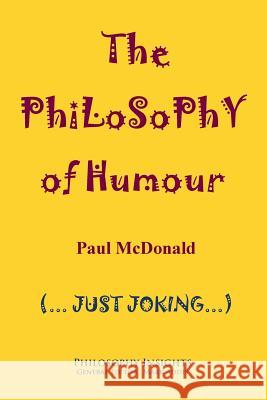The Philosophy of Humour » książka
The Philosophy of Humour
ISBN-13: 9781847602381 / Angielski / Miękka / 2013 / 138 str.
Comic novelist and critic Paul McDonald explores the philosophy of humour in a book that will appeal to philosophers and creative writers alike. One aim of this book is to assess theories of humour and laughter. It concentrates mainly on philosophical approaches to humour- including those of Plato, Aristotle, Cicero, Descartes, Hobbes, Bergson, Kant, Schopenhauer, Kierkegaard, Freud and Bakhtin, but also explores such fields as cultural studies, literary theory, religion, psychoanalysis, and psychology; this broad focus makes for a richer account of humour, its relationship with philosophical thought, and its bearing on the human condition. Readers are invited to engage in creative writing exercises designed to exploit this crucial facet of humour, and to help them explore relevant issues imaginatively. In this way they will deepen their understanding of those issues, whilst at the same time cultivating their own creative skills.
Comic novelist and critic Paul McDonald explores the philosophy of humour in a book that will appeal to philosophers and creative writers alike. One aim of this book is to assess theories of humour and laughter. It concentrates mainly on philosophical approaches to humour- including those of Plato, Aristotle, Cicero, Descartes, Hobbes, Bergson, Kant, Schopenhauer, Kierkegaard, Freud and Bakhtin, but also explores such fields as cultural studies, literary theory, religion, psychoanalysis, and psychology; this broad focus makes for a richer account of humour, its relationship with philosophical thought, and its bearing on the human condition. Readers are invited to engage in creative writing exercises designed to exploit this crucial facet of humour, and to help them explore relevant issues imaginatively. In this way they will deepen their understanding of those issues, whilst at the same time cultivating their own creative skills.











